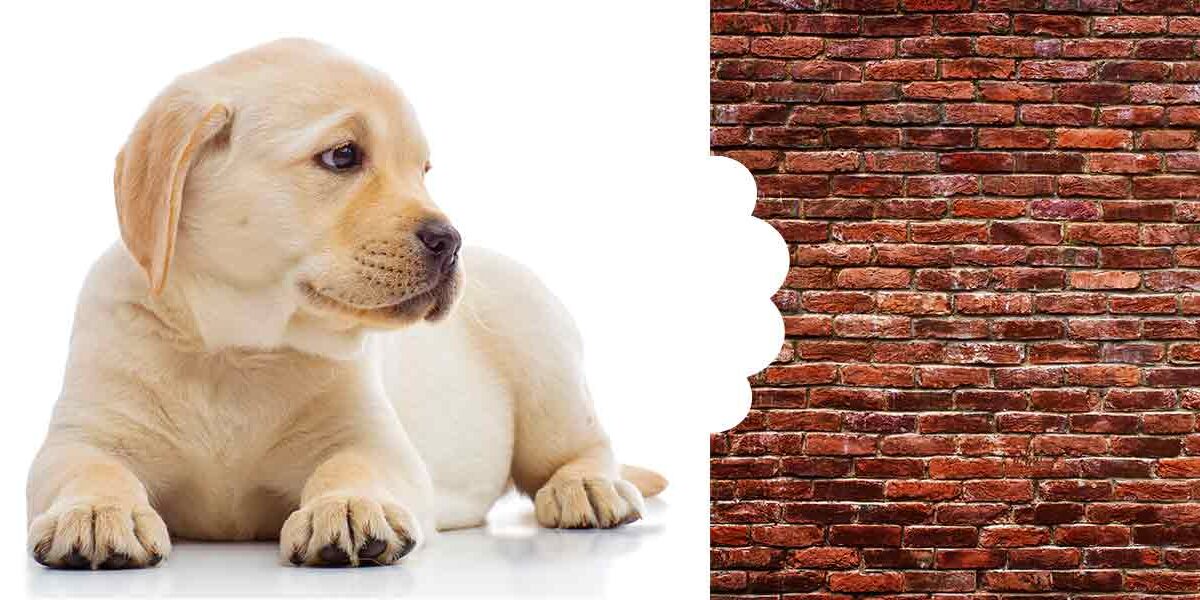Dogs are adorable creatures that we love with all our hearts, but one thing’s for sure; they sure like to chew!
It is annoying when you constantly have to watch them and chase them around the house, yelling “no!” all the time as they attack your belongings and furniture.
Whether they are puppies or adult dogs, your stuff will never be safe unless you occupy them with something else.
Chewing is not only going to cost you a few bucks, but it can also be dangerous for your dog as they get into trash or electrical wiring.
In this blog post, we’ll take a closer look at why dogs chew and what we can do about it.
Why Dogs Chew?
Puppies and dogs tend to chew for different reasons. Puppies chew because they are teething, somewhat similar to a human infant. Their teeth are developing and itching, and they chew to relieve the discomfort.
The chewing might be a passing phase (if you’re lucky!) or it could be a bad habit that is here to stay, so it’s best you nip it in the bud while you can.
Adult dogs are a whole different ballgame though. Dogs chew for different reasons, the most common reasons being anxiety, boredom, excess energy, and stress.
The most common form of anxiety is separation anxiety, and many dogs have this to a certain degree. Dogs are social animals that are unhappy when they are kept away from their humans, especially for long periods.
This anxiety might manifest in behaviors like constant whining, excessive barking, digging, chewing, and all-around destruction.
In addition, if your dog is crated while you are gone, boredom and anxiety might cause him to attack the crate.
Destructive chewing can also be exhibited by a high-energy dog that isn’t getting enough exercise. It’s not just humans who benefit from exercise – dogs need it too! A lack of physical activity can lead to weight gain, joint pain, and other health problems in dogs.
That’s why it’s so important to make sure that our furry friends get plenty of exercise. Taking them for a walk or playing fetch are both great ways to give them the activity they need.
You can also feed them natural supplements so that they are more relaxed and happy to lounge around while you are out.
How To Stop Chewing
To prevent your dog from chewing the house down, make sure you have plenty of chew toys and dental sticks in your doggy arsenal. If you’re going to stop your dog from chewing on your stuff, you should definitely keep some “approved-to-chew” toys on hand!
To illustrate to them what is unacceptable behavior, they will need to know some basic commands like “drop it” and “leave it”.
If you notice your dog chewing, you can redirect that behavior by saying “no” and taking the object away from them and replacing it with a chew toy.
The moment your dog changes his or her attention to the chew toy or treat, make sure you praise them a lot and reward them for their good behavior in order to reinforce the desired behavior.
Dog Proof Your House
Correcting your dog when you can watch them is one thing, but keeping your home (and your dog!) safe is another. To have your dog safely roaming in your home while you are out, make sure that your home is dog-proof to prevent your dog from having a serious accident.
Keeping things out of reach that your pooch may chew on is important if your pup has a tendency to chew things he shouldn’t.
Don’t let your pup get into doors you don’t want him to enter. Place valuable objects out of reach. Dogs can chew anything they can reach, including laundry, so make sure it is put away or put in a basket that they cannot reach.
Make sure all your trash is placed in a sealed bin so your dog cannot access it. A major reason for veterinary visits is food toxicity.
Make sure everything is elevated off the floor and placed on counters that your dog cannot reach.
Final Thoughts
Chewing is a natural behavior for puppies that can continue way into adulthood. You’ll need to figure out the reasons for chewing, and if it is indeed a destructive one as many dogs simply find pleasure in it! Good luck!


